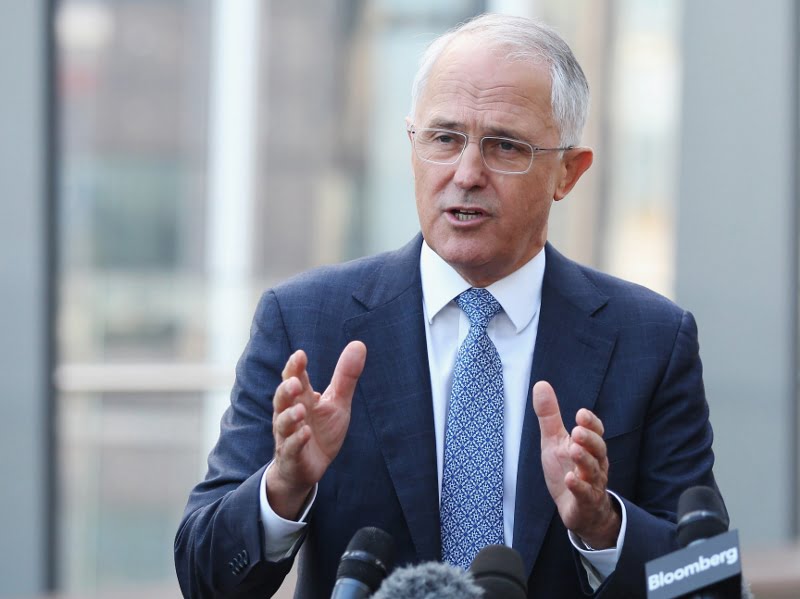A re-elected Coalition Government will publish a digital transformation roadmap for the public sector by November, and give citizens access to dashboard data that measures against delivery timelines and KPI’s like cost per transaction, user satisfaction and completion rates.
The government also outlined plans to Shanghai private sector experts into departments and agencies on secondment in order to accelerate the digital changes to services delivery, and has also committed to an overhaul of Federal ICT procurement practices.
The launch of the coalition’s policy for Better and More Accessible Digital Services was a low-key affair and is unlikely to be a vote-changer. But its measures will have a big impact on the Australian Public Service and the local tech scene.

The policies have the effect of delivering greater power to the Digital Transformation Office as an instrument of change, while keeping responsibility for service delivery within the different departments and agencies.
At the top of this program is the so-called digital transformation roadmap, which is firmly the responsibility of the DTO. Departments and agencies have been formulating their digital strategies and submitting them to the DTO.
This not new policy. The DTO had already been working with agencies to publish agency-level roadmaps. The difference now is that government has committed to a November deadline for the creation of macro-level government roadmap (that is, where the DTO has identified resource priorities for the highest-value services and transactions.
With the roadmap comes the public dashboard. These dashboards are becoming more commonplace – the UK’s GDS has been a pioneer – providing data on key-performance indicators at as close to real-time as possible. This is bold. It is certainly new behaviour for the Commonwealth.
The November launch will be revealing if nothing else, as it will set benchmarks for these indicators, and apply improvement goals to each of them.
The Coalition policy also formalises the DTO’s involvement in the renovation of the myGov website to make it easier to use and more accessible through smartphone and tablet devices. The government had previously earmarked $50 million to modernise myGov, with the DTO to partner with Medicare, Child Support, Centrelink and the Australian Taxation Office.
The myGov portal is much lamented and much criticized. It is difficult to use, and as a result is not used enough. The DTO is thought to have been loathe to go anywhere near myGov (and had instead embarked on its own longer term ‘identity’ program.
The additional $50 million for myGov is an interim measure. The project aims to stabilise the infrastructure and improve the front-end, making myGov a more useable solution while these longer term digital identity services are rolled out.
And ‘identity’ is at the core of the digital service delivery. Another election commitment promises to give citizens greater control of their personal information. The commitment – which is presumably being based on the DTO’s ‘identity’ work – will ultimately enable more complex service transactions that involve both a government agency and the private sector – to be carried out more simply.
And this is where identity issues are so paramount.
Perhaps controversially, the Coalition is also seeking to establish an “Experts in Residence” to make it easier for departments and agencies get access to “world-class” digital skills.
“We will partner with private sector companies to access digital experts on three, six or 12 month secondments,” the policy said.
“Secondments will help increase the level of collaboration between government and the private sector, making it easier for government agencies to access specialist digital skills.”
“Secondees from the private sector will offer important insights and experience that will support government agencies to deliver services that are simpler and more accessible for customers.”
Details of the program are still to be worked out. It is not clear who will be paying for the secondments (whether government takes over the salary commitment for the duration, or if it is a combination of both.)
And it is far from clear how government will afford to pay for what are, in the private sector, extremely well-paid positions.
Of course such secondees could be sourced from global companies – Google, Salesforce, AWS, Microsoft for example – but how the roles will be played out within departments is unclear.
Such policy is not unique (there is nothing new under the sun, after all.) President Obama has made much of his recruitment of private sector experts from top US companies to drive digital initiatives in the US.
The President had also sought to make it easier for private sector people to move in and out of public service (and he was happy to use his own charisma and a call to doing a public good as the appeal above money.)
Finally, the coalition has promised to overhaul to way it buys information and communications technologies. The current system is recognised as not fit for purpose. It is expensive, slow-moving and has just as much chance of killing an Australian small business as it does providing it with an opportunity.
“The Coalition will establish a taskforce in the Prime Minister’s Department to reform government ICT procurement policies,” the policy states.
The taskforce will be supported by the Digital Transformation Office and will complement initiatives from the National Innovation and Science Agenda such as developing a digital marketplace.
“The taskforce will identify existing procurement barriers and opportunities to streamline ICT procurement. It will also identify opportunities to make it easier for startups and small and medium businesses to compete for government ICT contracts.”
“Many digital companies offer innovative ‘off the shelf’ products that are low risk and could be used to accelerate the digitisation of government services.”
“It is important that innovative digital companies, particularly startups and small and medium businesses, are not hindered by traditional procurement pathways for minor or standard products, or compliance requirements that do not match the simplicity of the procurement.”
Do you know more? Contact James Riley via Email.

